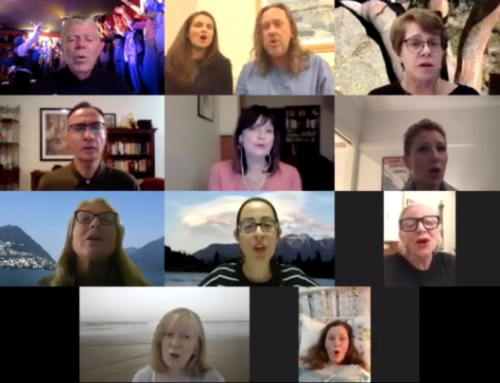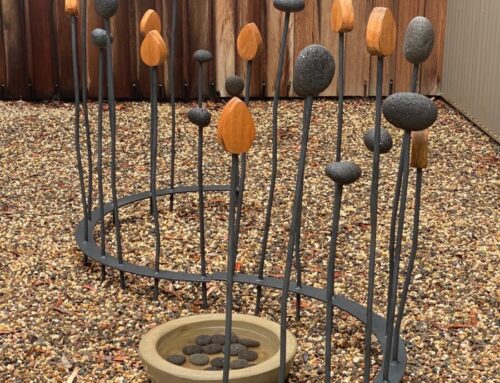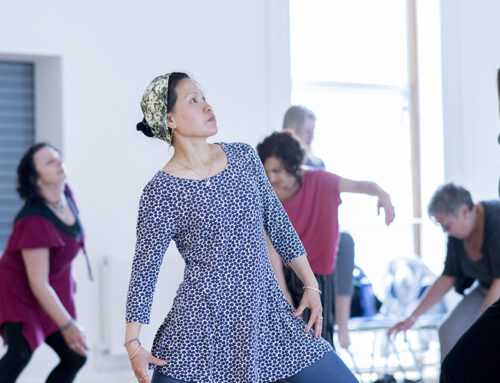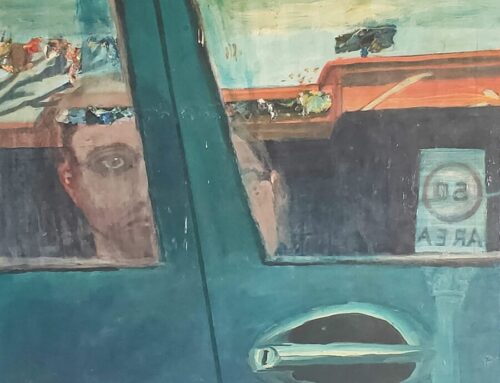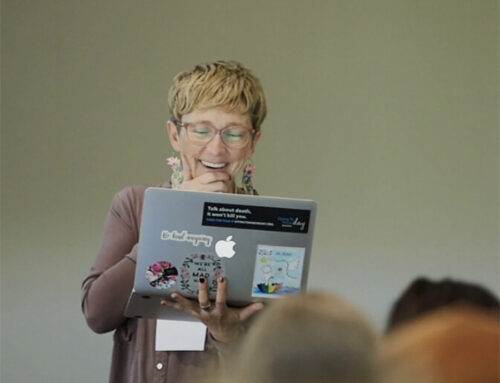Elaine is a writer, director and performer, who came to Australia from Wales in 1980 to join a theatre company. Elaine has returned to Wales over time and we have already seen in this exhibition the artistic output of one of those return journeys in her video ‘Moment(o)s Of Leaving’, set in the former Psychiatric Hospital, Whitchurch. Elaine considers her work as an artist to “live at the intersection of art and mental health.” In this work in progress, ‘Crazy Wall’, Elaine investigates connectedness, isolation and identity.
Having been homeless for a few years, I was suddenly offered public housing in the Surry Hills Northcott Housing Commission estate in March, moving in two days before the Lockdown.
My daily life began shrinking, my connections slowly disappearing. Being single, I am used to spending vast amounts of time by myself. With the health restrictions, I found myself having to guard against a rather bleak vastness, with no end in sight, having no mirror of social reflection to re-energise. I found my sense of self starting to diminish.
Usually I work with a team of other artists to devise projects. These collaborators bring new and exciting dynamic to my own autobiographical work. Working alone was always going to be a challenge for me; I would have to dig deep, establish new routines and bring discipline to my work practice. And I would have to battle the sense of a gloomy pointlessness seeping over the windowsill.
I knew if I could latch onto a small life raft of Making Something, it would rekindle my creativity. I needed to prise myself away from distractions such as fanatical cleaning and re-arranging my underwear drawer. The time seemed right to begin dismantling boxes that contained my life. To blow off the cobwebs formed during years in storage and take a peek inside. Pinning documentary evidence to a series of large foam boards, photos, letters, dates, characters, started to look familiar. The focal point in crime television is the Forensic Evidence Board. The catch all phrase for this is a “Crazy Wall’. How apt. Arriving like a torch in the night, I had a new project. “Crazy Wall.’

‘Crazy Wall’ (2020), documents, memorabilia, diaries, photos, letters, plays, film scripts.
A “Crazy Wall” is the name used for a forensic investigation board. In murder investigations, detectives use these boards to construct the story of a life, where the main witness is absent. To solve the mystery, they need to get to know the person intimately, to work out what made them tick. They start with one photo of the main character and work out from that, adding images and clues to establish themes and motives of a life. So, my ‘Crazy Wall’ project is about identity, in relation to the past, the present and place the future is on hold.
The Making Effect of this work is life affirming. It brings my past to my very small present. I feel more whole. For many people, their present has been turned upside down, with little hope for the future. This solitary process of archiving, has brought a sense of peace to my life, giving me a focus. It has kept me company.
Australia is home to many who seek refuge for different reasons. Whatever the reason, the quest to maintain or create a new identity is entwined with needing a sense of home and belonging, something I have grappled with for 40 years.
“Crazy Wall” has come into being within my new home in The Northcott Housing Commission, home to the bad, the mad and the sad, where people of different cultures, ages and diverse states of mind seek refuge.
Personal stories tend to resonate on a deep level. The importance of being able to access our hidden inner turmoil is important for us all. My projects all start with my autobiographical experiences and then expand to what I hope is the universal experience. People relate to personal stories, even if they haven’t experienced the events themselves. By witnessing another’s story, they develop a more compassionate understanding. Personal stories also give a voice to those who are silent.
When it comes to mental wellbeing, the need to feel connected is vital. journaling assists me in my hours of darkness and isolation. By diarising, I have “someone” to talk to, a constant companion, if you will. It helps me make sense of things around me. I then transform these scribbles into a more cohesive story, related to the world around me.

Elaine Paton
COVID has changed the way I work. Instead of collaborating, I am working in isolation. It’s forced me think and create outside of my box. There has been an up-side.
More of Elaine’s work can be found at www.elainepaton.org

